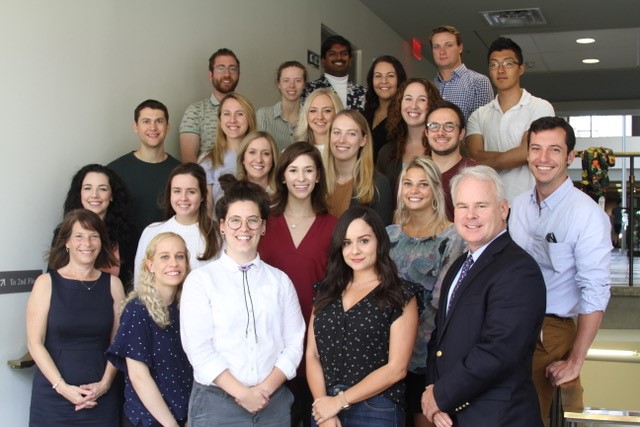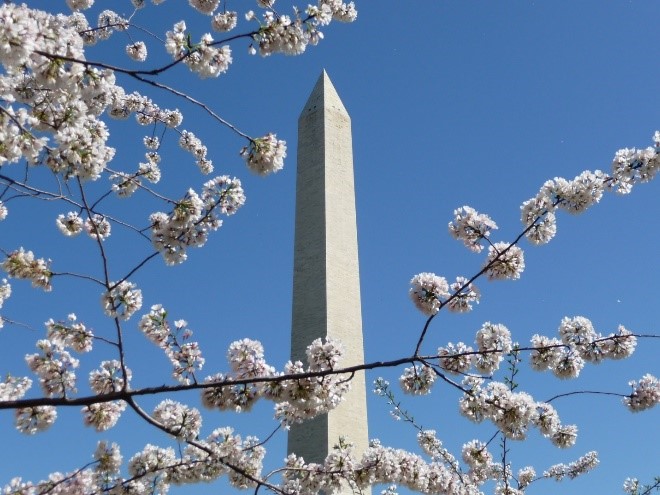Top Legal Scholars, Policymakers, and Practitioners to Discuss Innovative Law and Policy Proposals at the 12th Annual Environmental Law and Policy Annual Review Conference
Interested in learning from leading scholars, policymakers, and practitioners about innovative policy proposals related to federal energy leasing, state preemption of local environmental initiatives, or free trade and enforcement of environmental laws? If so, you’ll want to attend the 12th annual Environmental Law and Policy Annual Review (ELPAR) conference on March 29, 2019, in Washington, D.C. The conference is free, and for those of you outside the D.C. area, it will also be available via webinar.
Each year, ELPAR—a collaboration between Vanderbilt University Law School (VULS) and ELI—identifies articles that propose innovative law and policy approaches to pressing environmental problems. The selection process is part of a class taught by ELI Senior Attorney Linda Breggin and Vanderbilt Law Professor Michael Vandenbergh. The students work in collaboration with ELI Research Associate Anna Beeman, Environmental Law Reporter (ELR) Editor-in-Chief Jay Austin, and ELI Director of Communications and Publications Rachel Jean-Baptiste to select the articles that forward creative, persuasive, and feasible law and policy proposals. The methodology used is available here. After the students have narrowed the articles down to a pool of about 20, they meet with an expert advisory committee of environmental professionals who provide input on the articles.

Vanderbilt University Law Students ELPAR 2018-2019 with ELI Senior Attorney Linda Breggin (front row left) and Professor Michael Vandenbergh (front row right)
Following article selection, ELI and VULS recruit expert commenters for each article from government, nongovernmental organizations, law firms, and corporations to join authors at the annual conferences in D.C. and Nashville, Tennessee. The conferences are typically attended by a range of stakeholders, including Capitol Hill and federal agency staff, trade press, law firm associates and partners, and nonprofit leaders.
The project culminates in a joint ELI/VULS publication, the August issue of ELR’s News & Analysis. It includes condensed versions of the selected articles and short written pieces by the commenters. The 2018 issue can be found here—or you can subscribe and obtain this year’s ELPAR issue when it is published in August.
The articles selected this year span a range of topics:
- Jayni Foley Hein, Federal Lands and Fossil Fuels: Maximizing Social Welfare in Federal Energy Leasing, 42 HARV. ENVTL. L. REV. 1
- Tom Lininger, Green Ethics for Judges, 86 GEO. WASH. L. REV. 711
- Timothy Meyer, Free Trade, Fair Trade, and Selective Enforcement, 118 COLUM. L. REV. 491
- Richard C. Schragger, The Attack on American Cities, 96 TEX. L. REV. L. 1163
- Richard Revesz and Burcin Unel, Managing the Future of the Electricity Grid: Energy Storage and Greenhouse Gas Emissions, 42 HARV. ENVTL. L. REV. 139
Additionally, we selected three articles to receive honorable mentions, and will republish their abstracts:
- Albert Lin, Herding Cats: Governing Distributed Innovation, 96 N.C. L. REV. 945
- Jim Rossi, Carbon Taxation by Regulation, 102 MINN. L. REV. 277
- Philip J. Weiser, Entrepreneurial Administration, 97 B.U. L. REV. 2011
This year, ELPAR will host three events:
March 29, 2019, Conference at ELI Headquarters, Washington, D.C.
 Prof. Jayni Foley Hein, Natural Resources Director at the N.Y.U. Institute for Policy Integrity, will present key arguments from her article on federal energy leasing at the conference. She argues that the U.S. Department of the Interior (DOI) should update fossil fuel leasing and royalty rates on federal lands to maximize public benefit and social welfare. Moreover, DOI should adopt several reforms that will provide maximum net benefits, resulting in less production, fewer greenhouse gas emissions, and more revenue than under existing rules. To discuss this issue, Professor Hein will be joined by Tommy Beaudreau from Latham & Watkins, and Rebecca Fischer and Daniel Timmons from Wild Earth Guardians.
Prof. Jayni Foley Hein, Natural Resources Director at the N.Y.U. Institute for Policy Integrity, will present key arguments from her article on federal energy leasing at the conference. She argues that the U.S. Department of the Interior (DOI) should update fossil fuel leasing and royalty rates on federal lands to maximize public benefit and social welfare. Moreover, DOI should adopt several reforms that will provide maximum net benefits, resulting in less production, fewer greenhouse gas emissions, and more revenue than under existing rules. To discuss this issue, Professor Hein will be joined by Tommy Beaudreau from Latham & Watkins, and Rebecca Fischer and Daniel Timmons from Wild Earth Guardians.
Prof. Richard Schragger from University of Virginia School of Law will discuss the issue of state preemption of cities. Specifically, he argues that the American constitutional system’s roots in “anti-urbanism” result in state legislative actions that attempt to reign in “wayward’ cities through preemption and hinder municipal action. In response, he suggests that in addition to legal remedies, cities can forge alliances with national interest groups, powerful corporations, and metropolitan areas to preserve their power to regulate and promote their interests. The panel will include commentary from Gus Bauman of Beveridge & Diamond, Kim Haddow of Local Solutions Support Center, and Lewis Rosman from the City of Philadelphia Law Department.
Prof. Timothy Meyer from Vanderbilt Law School writes about trade and the environment and postulates that selective enforcement of environmental and other laws distorts trade markets to the detriment of the environment by slowing development of competitive environmental-friendly products. Accordingly, the World Trade Organization enforcement process should be reformed by creating a centralized enforcement procedure for environmental products, and reforming trade remedies investigations. Professor Meyer will discuss his proposal with other panelists, including Jay Campbell from White & Case, Sharon Treat from the Institute of Agriculture and Trade Policy, and Steve Wolfson of the U.S. Environmental Protection Agency.
March 25, 2019, Symposium at Vanderbilt University Law School, Tennessee
A fourth article will be discussed at a symposium on March 25, 2019, at Vanderbilt University Law School. In Green Ethics for Judges, Prof. Tom Lininger proposes that the ethical rules for judges should be revised using rules of general application to elevate the importance of environmental stewardship, such as by importing the “precautionary principle” and establishing an ethical imperative to find scientific facts accurately. Lininger’s panel will be joined by panelists John Pendergrass from the Environmental Law Institute, Amanda Garcia from Southern Environmental Law Center, and Lucian Pera from Adams and Reese LLP.
April 8, 2019, Webinar
Finally, ELI will hold a public webinar on April 8 to highlight a fifth article, Managing the Future of the Electricity Grid: Energy Storage and Greenhouse Gas Emissions, by Richard L. Revesz and Burcin Unel. Dr. Unel’s and Professor Revesz’s thesis is that to ensure that energy storage deployment is environmentally beneficial and economically efficient, state and federal regulators should adopt policy reforms that internalize emissions externalities, eliminate entry barriers, and modify market rules to guarantee accurate price signals that value the benefits of clean energy storage. Dr. Unel will discuss their proposal in the upcoming webinar along with panelists Daniel Adamson from the Federal Energy Regulatory Commission, John Fernandes from Customized Energy Solutions, Kelly Speakes-Backman from the Energy Storage Association, and Ryan Trahan from Law Offices of Ryan Trahan.
Join us to investigate and discuss these innovative environmental law and policy proposals. For more information about the conferences, please visit: https://www.eli.org/environmental-law-and-policy-annual-review.

